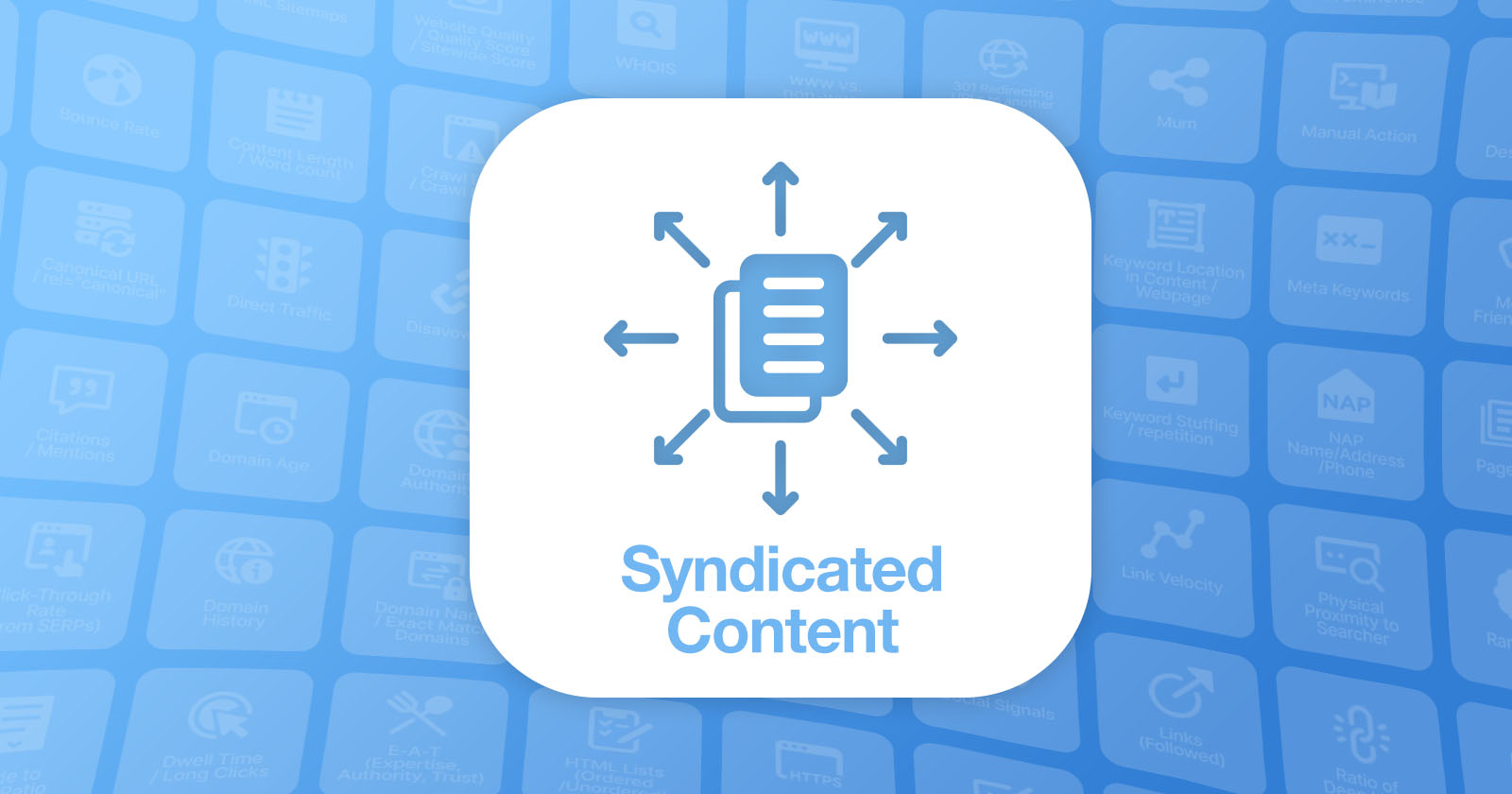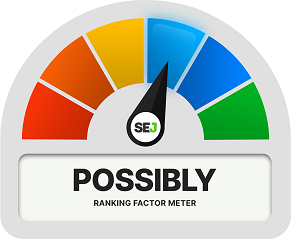Syndicated Content: Is It A Ranking Factor? via @sejournal, @kristileilani
Does syndicated content affect search rankings? Discover its impact, from outranking originals to spam concerns. The post Syndicated Content: Is It A Ranking Factor? appeared first on Search Engine Journal.

Does syndicated content affect organic search rankings?
In some cases, syndicated content is viewed as spam.
In others, it can outrank the original content.
Yet syndication is a widely accepted practice in journalism and content marketing alike.
But is it a ranking factor in search ranking algorithms?
The Claim: Syndicated Content Is A Ranking Factor
Content syndication happens in several ways.
Individual content authors may choose to syndicate their content to reach larger audiences.
For example, a CEO may publish a blog on their company website.
They may then syndicate the same blog post to LinkedIn, Medium, or elsewhere.
This enables them to tap into the audiences of each network and possibly link back to the main company website.
Publications and blogs can also choose to syndicate content.
This happens when a publisher (content creator) agrees to share their content with a partner (the syndicator) – or even multiple partners – to expand further the reach of that piece of content and the brand behind its creation.
The syndicated content piece, when it appears on the third-party site, could end up being:
Identical (all content is the same except for the URL where it lives). Condensed (e.g., perhaps only the first paragraph or some portion of the article appears). Edited significantly (e.g., it has a different headline or has had parts edited, removed, or rearranged).When syndication happens without the creator’s consent, this piracy can result in duplicate rather than syndicated content.
Let’s call this what it is: Content theft.
Some websites use software to scrape content from other websites.
These websites may only scrape content about a particular topic to syndicate.
Others may scrape anything popular in an attempt to attract search traffic.
The Evidence Against Syndicated Content As A Ranking Factor
Google Search Central has specific quality guidelines for web admins. In the Advanced SEO section, they specify two scenarios related to syndicated content that constitute webspam:
Publishing auto-generated content created by scraping RSS feeds or search results. Publishing scraped content using automated techniques that add no additional value to or modify the original content.In either scenario, your content is unlikely to rank in search results.
The authors of the original content may also be able to file for copyright infringement.
In 2012, Google Search Central released a video on webspam content violations.
This video reiterates using automation and scraping to create syndicated content as spam.
In 2018, John Mueller, Google Search Advocate, talked about how syndicated content had the potential to outrank original content.
This happens when the syndicate site has additional valuable content surrounding the pirated content.
In 2021, in an article published on Google Search Central for developers, Google discussed handling duplicate content.
In regards to syndicated content, they suggest the following:
“If you syndicate your content on other sites, Google will always show the version we think is most appropriate for users in each given search, which may or may not be the version you’d prefer.
However, it is helpful to ensure that each site on which your content is syndicated includes a link back to your original article. You can also ask those who use your syndicated material to use the noindex tag to prevent search engines from indexing their version of the content.”
In 2023, Google SearchLiaison discussed syndicated content related to Google News.
I talked in May at an AOP event in London & revisited our guidance about syndication, so maybe these slides I used there will help. Our main help page change was to focus on your goal with syndicated content rather than the mechanism… https://t.co/YcEzsdBv82 pic.twitter.com/FFhA7doHTS
— Google SearchLiaison (@searchliaison) July 7, 2023
Syndicated Content Can Be A Negative Ranking Factor

Syndicating content will not help the rankings of the original content in search results.
On the other hand, despite Google’s attempts to prioritize original content over syndicated content, there are many reasons that the algorithms might surface syndicated content in preference of the original.
Google employees go as far as suggesting that you should ask websites that syndicate your content to block Google from indexing it due to the fact that syndicated content can and will outrank the original source.
In 2006, Google offered the following advice about syndicated content:
“Syndicate carefully: If you syndicate your content on other sites, make sure they include a link back to the original article on each syndicated article. Even with that, note that we’ll always show the (unblocked) version we think is most appropriate for users in each given search, which may or may not be the version you’d prefer.”
If you syndicate content using Google’s suggested best practices, there should be no ranking impact.
If Google detects automated scraping and syndication, you could be flagged as spam.
If someone who syndicates your content refuses or forgets to noindex it, then it could outrank you.
Featured Image: Robin Biong/Search Engine Journal

 AbJimroe
AbJimroe 































